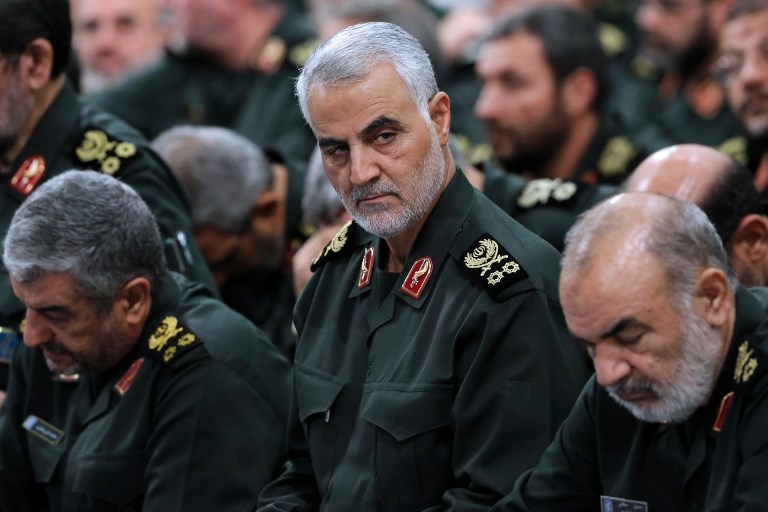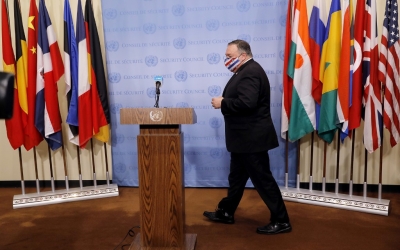Iran plotting to assassinate US ambassador to South Africa: Report

Iran is reportedly plotting to assassinate the US ambassador to South Africa to avenge the killing of General Qassem Soleimani, according to a report by Politico, citing intelligence papers seen by US officials.
US intelligence chiefs said they have been aware of threats towards Ambassador Lana Marks, 66, since early in the year, but details of the plot against her suddenly became more specific in recent weeks.
A US government official told Politico that the Iranian embassy in Pretoria was involved in the plot and Marks had been made aware of the threat.
According to a 2015 directive known as the "Duty to Warn," US intelligence agencies are required under law to warn individuals if they are known to face an imminent risk of murder, kidnapping or serious bodily harm.
Politico reported that Marks, a South African-born luxury handbag designer, was likely targeted by the Islamic Republic for her proximity to US President Donald Trump.
Marks was a member of Trump's exclusive Mar-a-Lago club in Florida before she was nominated as ambassador by the president in 2018.
Other than Marks' relationship with Trump, officials noted it was unclear why she was singled out.
Intelligence officials have suggested that carrying out an attack in South Africa could be easier than targeting American diplomats in other parts of the world where better relationships between the US, local police and national intelligence services could see an attack foiled.
'Ready for it'
Tensions between Iran and the US - which had already been deteriorating since Trump walked away from the Iran nuclear deal in 2018 - reached a boiling point on 3 January when Washington killed Soleimani in a targeted drone strike.
Trump claimed at the time that Soleimani was planning attacks on American embassies, but later US officials cast doubt on the claims.
Days after the attack, Iran launched ballistic missiles at a military base in Iraq hosting US troops, resulting in "traumatic" brain injuries but no casualties.
General Kenneth McKenzie, the head of US Central Command, said last month he expected a new "response" from Iran to America's ongoing presence in Iraq.
"I do not know what the nature of that response will be, but we will certainly be ready for it, should it occur," he said.
The US has most recently been calling for the United Nations to extend its arms embargo on Iran, which is due to expire in October.
Washington proposed a resolution to do so last month that failed to pass, and the US is now threatening to trigger snapback sanctions on the country if the UN does not extend the embargo.
Middle East Eye delivers independent and unrivalled coverage and analysis of the Middle East, North Africa and beyond. To learn more about republishing this content and the associated fees, please fill out this form. More about MEE can be found here.





